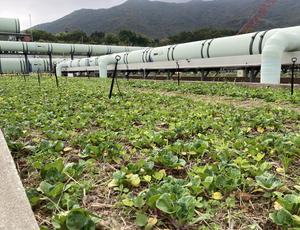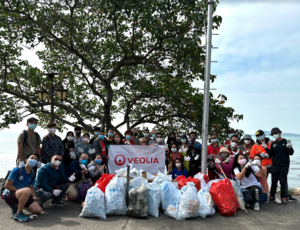To be useful to all its stakeholders, Veolia has incorporated environmental, human resources and social (CSR) objectives and indicators at the heart of the company’s operation. This is what the Group refers to as “multifaceted performance”. Constituting a tool for steering and transformation, multifaceted performance approaches economic, human resources, social and environmental issues as an inseparable whole while striking a balance between these various performance dimensions.
What is the definition of CSR?
Corporate Social Responsibility, or CSR, refers to the role that a company can play in the sustainable development of our societies. In 2015, the United Nations defined 17 Sustainable Development Goals (SDG) for 2030 which notably aim to enable everyone to live in good health with access to clean water and sanitation services, to combat climate change while preserving and restoring ecosystems, and to promote sustained, inclusive and sustainable economic growth and decent work for all.
A company or organization wishing to define a CSR policy will seek to identify the environmental, human resources and social impacts of their activities, and in so doing their possible contribution to one of the 17 SDGs. They will then seek to maximize their positive impacts and limit any negative impacts. To achieve this, they are encouraged to interact with their stakeholders.
Veolia’s purpose is to contribute to human progress, by resolutely adhering to the Sustainable Development Goals (SDGs) defined by the UN, in order to achieve "a better and more sustainable future for all". Veolia is involved to a greater or lesser extent in the implementation of each of the 17 UN SDGs, with a direct impact on 14 of them.

The 14 impacted SDGs
10 SDGs directly related to its activities
As a player in urban services, Veolia has a major role in the management of essential water and wastewater services (SDG 6), energy (SDG 7) and sanitation (SDG 11). The Group promotes innovative industrial production (SDG 9) and more responsible consumption through the circular economy (SDG 12). Through its solutions, it also contributes to good health and well-being (SDG 3), climate action (SDG 13) and ecosystems (SDG 14 and 15). Finally, by promoting access to essential services, Veolia contributes to the reduction of inequalities (SDG 10).
3 SDGs linked to its organizational priorities as a responsible company
Veolia is working to develop the skills of its employees with a view to employability, but also to create value for its clients and regions through the network of campuses (SDG 4). The Group is committed to gender equality in the workplace and is working to increase the number of women in its professions and managers (SDG 5). Veolia is committed to supporting responsible growth by promoting decent working conditions for all, while respecting the human rights of its employees, subcontractors and suppliers (SDG 8).
1 key SDG as a lever in achieving the SDGs
As a local operator, Veolia interacts with all its stakeholders to jointly develop solutions adapted to the challenges of the regions. By developing new partnerships, relying on the complementary expertise provided by its partners and the creation of shared value, Veolia is helping to strengthen the means of implementing the SDGs (SDG 17).






